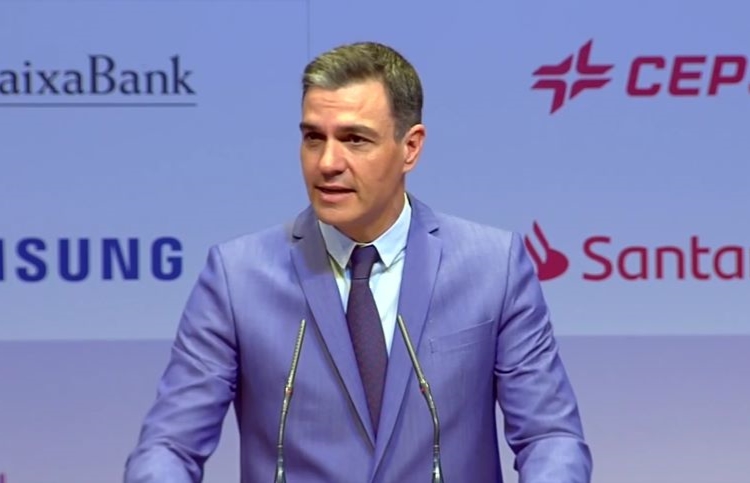The Diplomat
The Governments of Spain and Portugal will approve today a cap of 40 euros per megawatt/hour on the price of gas used to produce electricity, compared to the almost 80 euros that the market has registered in the last quarter.
This was announced yesterday by the President of the Government, Pedro Sánchez, during the inauguration of the second edition of the European Recovery Funds conference: The main projects, in detail, organized by elDiario.es at the Museo Nacional Centro de Arte Reina Sofía, in Madrid.
“Tomorrow we are going to hold an extraordinary Council of Ministers to approve the cap on the price of gas used to produce electricity, thus reducing the bill paid by families, companies and industries in our country,” said Pedro Sánchez. “The gas price cap that we are going to approve is 40 euros per megawatt/hour, compared to the almost 72 euros that the market marked, for example yesterday, or the almost 80 euros that the market has marked as an average price in the last quarter; in other words, we are talking about half,” he continued.
“The mechanism will be in force for the next twelve months, that is, for the next year, guaranteeing an average price during that period of 48.8 euros, which will also represent an important protection and a factor of predictability and tranquility in the face of future rises in international energy prices, in a geopolitical scenario of enormous volatility and, consequently, also of enormous uncertainty”, assured the head of the Executive.
“In parallel, the mechanism will also be approved tomorrow (today) by our Portuguese brothers in an extraordinary Council of Ministers to be held in Portugal, in a further demonstration of the close collaboration and coordination between the two governments that make up the Iberian electricity market,” he added.
Last March 25, the European Council approved the right of the two Iberian countries to manage their own gas reference prices for combined cycle power plants, in order to reduce electricity costs. “The Iberian peninsula has a special situation and we have therefore agreed on a possible special treatment to enable it to deal with the situation,” European Commission President Ursula von der Leyen said that day.
The “Iberian” solution had been proposed by Pedro Sánchez and the Prime Minister of Portugal, António Costa, after the impossibility of convincing the 27 EU states to fix the price of gas in order to contain electricity prices on the wholesale market, a proposal advocated by Spain, Portugal, Italy, Greece and Belgium and radically opposed by Germany and the Netherlands. Madrid and Lisbon therefore chose to recall the “energy island” nature of the Iberian peninsula because of its very low interconnection with the European energy market – only 2.8% between Spain and France – in order to convince the other partners that any intervention by the two Iberian countries in their own prices should not affect the overall functioning of the European market.
On April 26, Spain and Portugal reached an agreement with the European Commission to be able to set the initial reference price for gas at 40 euros (which would imply an average price of almost 50 euros over twelve months). The initial objective of the Madrid and Lisbon governments, presented on March 30 to the European Commission, was to set a reference price of 30 euros. Although the final agreement did not fully satisfy the pretensions of the two Iberian countries, it was still much lower than gas prices on international markets.







